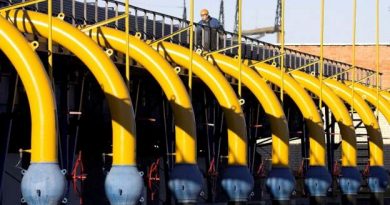FOCUS on Public Diplomacy Conflicts – Argentina and Venezuela
Yasmin Obeidallah
Staff Writer
Argentina and Venezuela are currently in the middle of a diplomatic row. Members of Venezuela’s opposition coalition have sheltered in the Argentinian embassy in Caracas, according to Al Jazeera. The office of Argentinian President Javier Milei released a statement that expressed “concern” at the “acts of harassment and persecution directed against political figures in Venezuela.” Milei has also warned Venezuelan President Nicolas Maduro against any action that deliberately endangers the safety of Argentinian diplomats or Venezuelan citizens under the embassy’s protection. Argentina has accused Venezuela of cutting the electricity supply to its embassy in Caracas after the arrival of the country’s opposition leaders in response, reports CNN.
These barriers posed to political dissidents has raised international concerns about the validity of Venezuelan opposition’s ability to be fairly represented in its upcoming presidential elections in July. The United States has long imposed economic sanctions on Venezuela, and Brazil and Colombia have also issued statements expressing concerns over the ability to have free and fair elections. Maduro has criticized these remarks as foreign governments seeking to “intervene in the internal affairs of Venezuela,”.
This comes as opposition figures struggle to secure a place on the ballot. Maduro has been accused of derailing and intimidating opposition candidates to seek a third six-year term. His administration has arrested two opposition figures and issued warrants for six more. Although the opposition members taking shelter in the Caracas embassy have not been named, they are believed to be among those facing arrest. Many of them are believed to be aides to María Corina Machado, leader of the Democratic Unitary Platform (PUD). In July 2023, the Venezuelan government placed a ban on her over corruption allegations, preventing her from entering the presidential race or holding public office. Other opposition coalition candidates have been blocked from registering for the vote, says Al Jazeera.
According to the 1961 Vienna Convention on Diplomatic Relations, embassies are codified as “privileged” areas under the rule of inviolability, which guarantees the sanctity of diplomatic and consular premises, says BBC News. According to Al Jazeera, embassies are treated as sovereign territories of their respective countries, not the territory of the host country, under international law. Local police and security forces are not allowed to enter the diplomatic facility’s premises. As a prerequisite for diplomatic relations, the Vienna Convention is widely adhered to worldwide.
Human rights law, including the European Convention on Human Rights and International Covenant on Civil and Political Rights, provide further protection for embassies, consulates, and diplomatic missions. Under the rule of inviolability, diplomatic personnel working in embassies are obliged to consider whether there is a risk that any occupant could be killed or seriously injured if they were handed over to the local authorities, reports BBC. According to Reuters, the Venezuelan government has allowed six aides of Machado were seeking refuge in the Argentine embassy to travel safely to Argentina. While the opposition members will be allowed to leave, the criminal case against them will continue.
Tensions between the two ideologically opposed governments have been simmering for years. Most recently, Amnesty International has found that Argentine courts, under the principle of universal jurisdiction, are fully equipped to investigate, prosecute and criminally punish the perpetrators of crimes against humanity committed in Venezuela. In their report, Amnesty International proclaimed that Venezuela’s justice system does not have “the will nor the capacity to genuinely and adequately investigate, prosecute and criminally punish the perpetrators of serious human rights crimes in its domestic jurisdiction.” Argentina claims that the Venezuelan government has subjected its people to “arbitrary detentions and enforced disappearances” and has failed to guarantee its citizens fair trials. The director of Amnesty International Argentina, Mariela Belski, argues that the human rights crisis in Venezuela is at its peak and the Argentine justice system can stop these violations and apply the force of international law.
Image is courtesy of Getty Images

